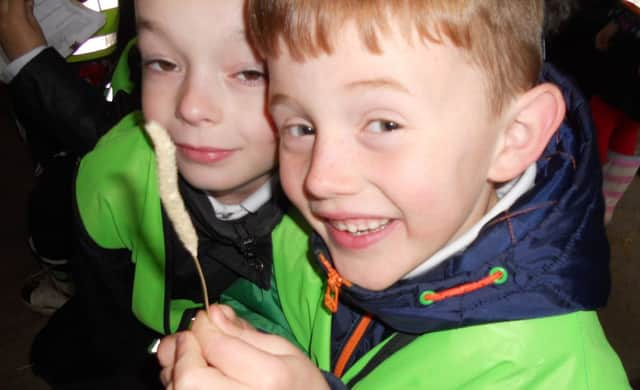Generation Z need a more rural future


It’s safe to say that those born into generation Z are likely to be one of the most ethical and environmentally aware generations to date. They are more likely to recycle, favour renewable energy and shop in a way that favours sustainably sourced local produce.
This isn’t to say that those in generation X, the grandparents of generation Z, aren’t responsible consumers, but this young group of society is growing up in a very different environment where choices are varied and possibilities are endless.
Advertisement
Hide AdAdvertisement
Hide AdThe Royal Highland Education Trust (RHET), the educational arm of the Royal Highland and Agricultural Society of Scotland (RHASS), is harnessing this opportunity to create the food literate consumer of tomorrow.
Through funding from the food and drink division of the Scottish Government, the charity and its army of volunteers takes 4,000 school children the length and breath of Scotland to Food and Farming Days: its aim is to create an understanding between Scotland’s future consumers with primary food production and producers, namely farmers.
Linked to Curriculum for Excellence, these free-to-attend events provide engaging hands-on learning experiences that bring to life what is being taught in the classroom across subjects as diverse as maths, geography, biology and science.
The pupils are introduced to farmers, butchers and gamekeepers who explain where their meat, vegetables, crops and dairy come from and how it gets from field to plate. They show how they manage their livestock, from birth to ready for consumption (slaughter is too strong a word) and take them to the fields where crops they grow and show how they end up in products on supermarket shelves. The regional focus means that the content on the Food and Farming Days will try to differ depending on where students live – malting barley in Fife, soft fruit in Angus – each area delivers a unique learning experience.
What is most compelling and perhaps the most important outcome from these visits is the connection the pupils make with the farmers and their families. By introducing them to the people behind the gate, getting young people to understand more about farmers’ daily lives, their commitment to animal welfare, expertise in growing crops and the challenges recent weather throws up, creates a deep level of engagement that extends beyond knowing where eggs comes from.
The outcome of these hugely worthwhile events is the creation of a personal and social connection that will create not just great memories but moreover a lasting legacy.
What this Scottish Government funding provides, goes beyond the practical but necessary support such as a free bus that gives urban school children the first and perhaps only taste of rural life, or the DVD that allows teachers to reinforce that was learnt in the outdoor classroom.
More importantly it sets/sows the seed for an integrated Scottish food community – a connected producer and consumer with a mutual understanding and appreciation. Only then will we be able to tackle Scotland’s uneasy relationship with food. This will hold Scotland in good stead to achieve the Scottish Government’s aspiration to become a Good Food Nation where it is second nature to serve, sell and eat fresh, healthy food.
• Katrina Barclay, RHET manager www.rhet.org.uk